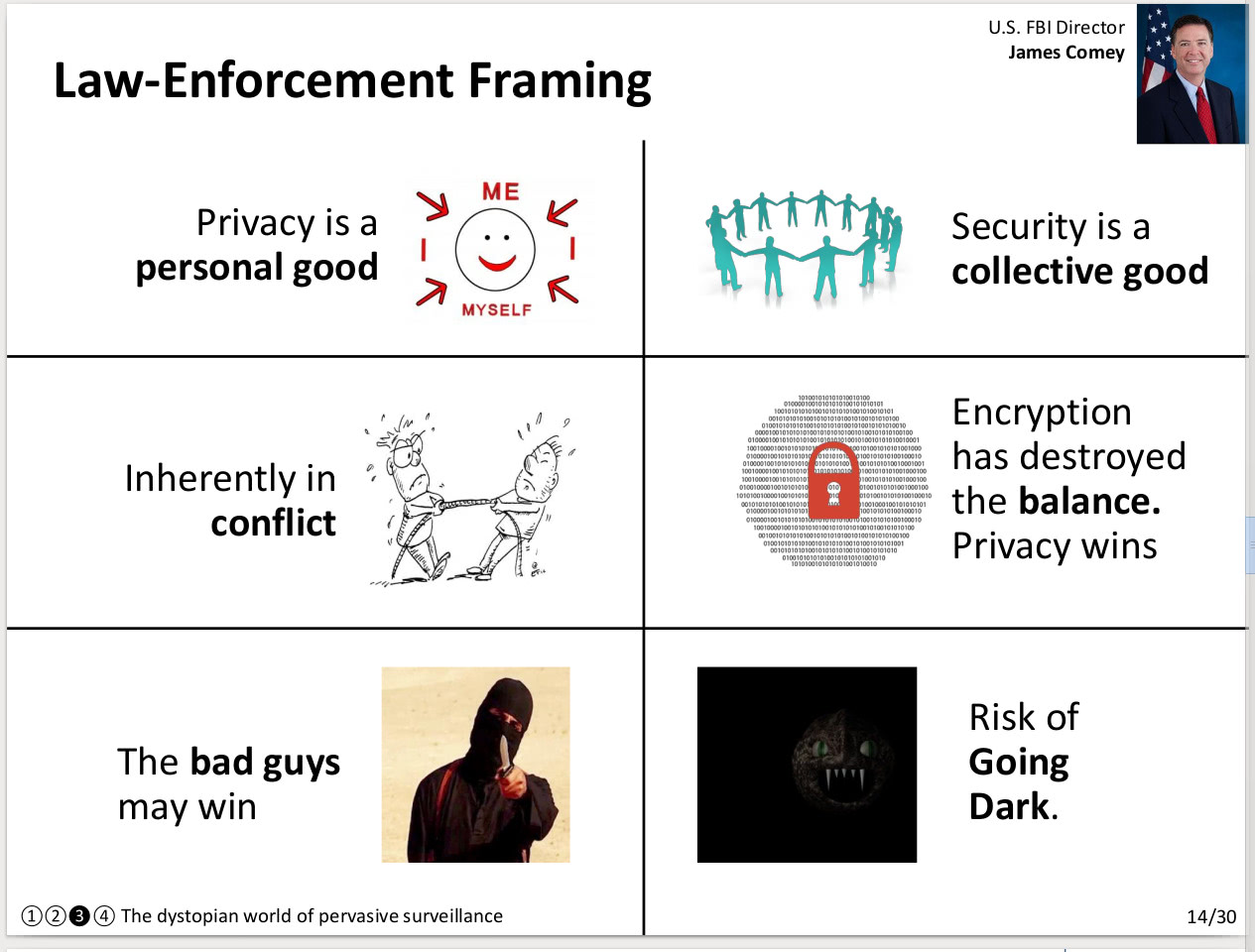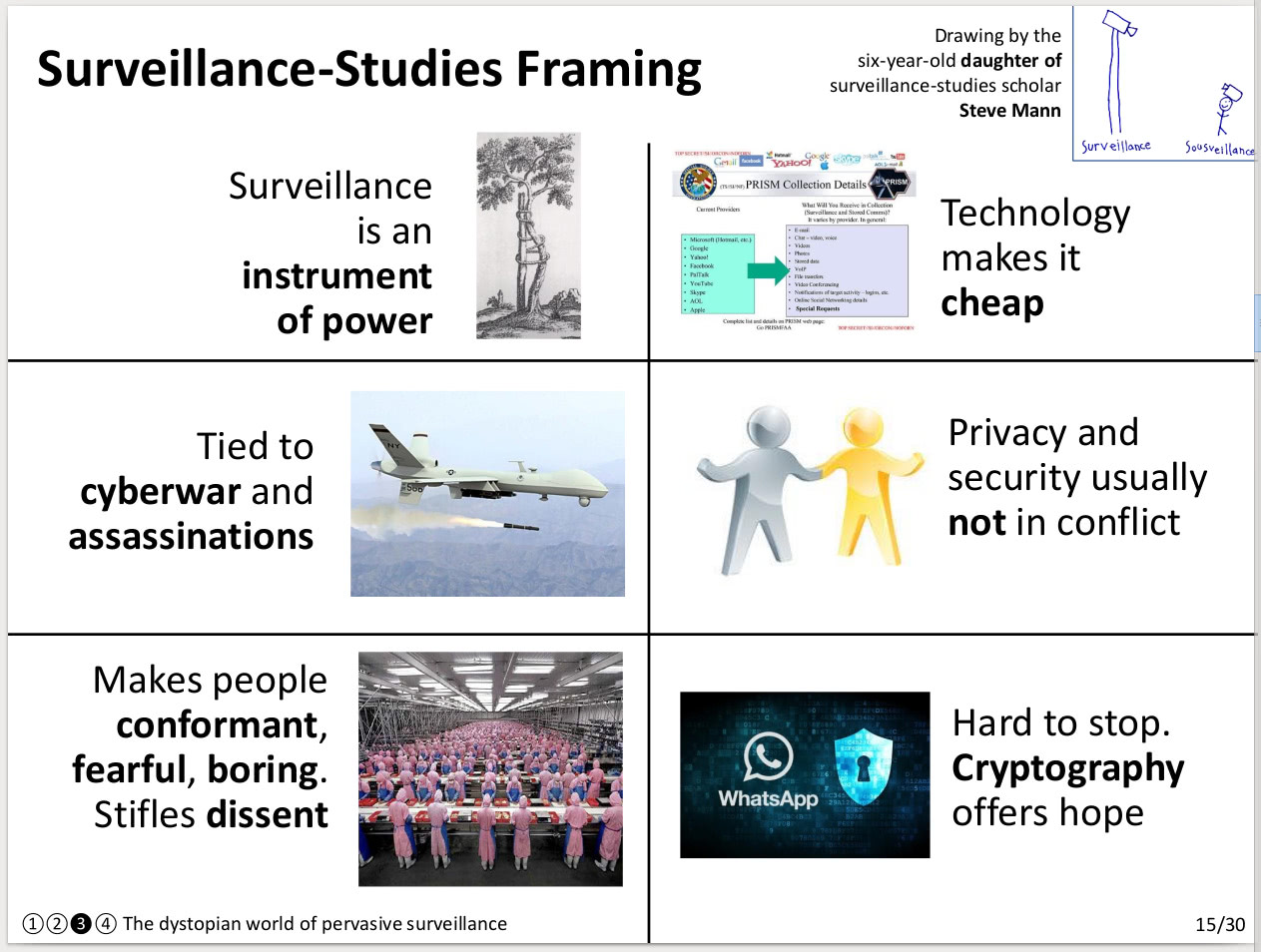Katzenpost Politics and Values
Why we started creating Katzenpost and what principles guide us.
The Moral Character of Cryptographic Work
December 2015, Philip Rogaway
“Cryptography rearranges power: it configures who can do what, from what. This makes cryptography an inherently political tool, and it confers on the field an intrinsically moral dimension. The Snowden revelations motivate a reassessment of the political and moral positioning of cryptography. They lead one to ask if our inability to effectively address mass surveillance constitutes a failure of our field. I believe that it does. I call for a community-wide effort to develop more effective means to resist mass surveillance. I plead for a reinvention of our disciplinary culture to attend not only to puzzles and math, but, also, to the societal implications of our work.” ~Philip Rogaway
Selected Quotes
“Still more ostensibly political is David Chaum’s body of scientific work, which thoroughly embeds concerns for democracy and individual autonomy. Chaum’s 1981 paper “Untraceable Electronic Mail, Return Addresses, and Digital Pseudonyms”, suggests that a crucial privacy goal when sending an email is to hide who is communicating with whom. The metadata, in modern political parlance. The author offered mix nets for a solution.”
“An especially problematic excision of the political is the marginalization within the cryptographic community of the secure-messaging problem, an instance of which was the problem addressed by Chaum. Secure-messaging is the most fundamental privacy problem in cryptography: how can parties communicate in such a way that nobody knows who said what. More than a decade after the problem was introduced, (C. Rackoff and D. Simon, “Cryptographic defense against traffic analysis”, in Proc. of the 25th ACM Symp. on Theory of Computing, May 1993, pp. 672-681) would comment on the near-absence of attention being paid to it.”
“Another 20-plus years later, the situation is this: there is now a mountain of work on secure-messaging, but it’s unclear what most of it actually does. A recent systemization-of-knowledge article paints a picture of a cryptographic task enjoying a flourishing of ad hoc solutions, but little of it arising from the cryptographic community, as narrowly construed, or tied to much theory. While one could certainly claim that this is true for almost all practical security goals that employ cryptography, I think the case is different for secure-messaging: here the work feels almost intentionally pushed aside.”
Law Enforcement Framing vs. Surveillance Framing
Consider the following way to frame mass surveillance, which follows often-heard thoughts from cypherpunks and surveillance studies.


-
Surveillance is an instrument of power. It is part of an apparatus of control. Power need not be in-your-face to be effective: subtle, psychological, nearly invisible methods can actually be more effective.
-
While surveillance is nothing new, technological changes have given governments and corporations an unprecedented capacity to monitor everyone’s communication and movement. Surveilling everyone has became cheaper than figuring out whom to surveil, and the marginal cost is now tiny. The Internet, once seen by many as a tool for emancipation, is being transformed into the most dangerous facilitator for totalitarianism ever seen. Governmental surveillance is strongly linked to cyberwar. Security vulnerabilities that enable one enable the other. And, at least in the USA, the same individuals and agencies handle both jobs. Surveillance is also strongly linked to conventional warfare. As Gen. Michael Hayden has explained, “we kill people based on metadata.” surveillance and assassination by drones are one technological ecosystem.
-
The law-enforcement narrative is wrong to position privacy as an individual good when it is, just as much, a social good. It is equally wrong to regard privacy and security as conflicting values, as privacy enhances security as often as it rubs against it.
-
Mass surveillance will tend to produce uniform, compliant, and shallow people It will thwart or reverse social progress. In a world of ubiquitous monitoring, there is no space for personal exploration, and no space to challenge social norms, either. Living in fear, there is no genuine freedom.
-
But creeping surveillance is hard to stop, because of interlocking corporate and governmental interests. Cryptography offers at least some hope. With it, one might carve out a space free of power’s reach."